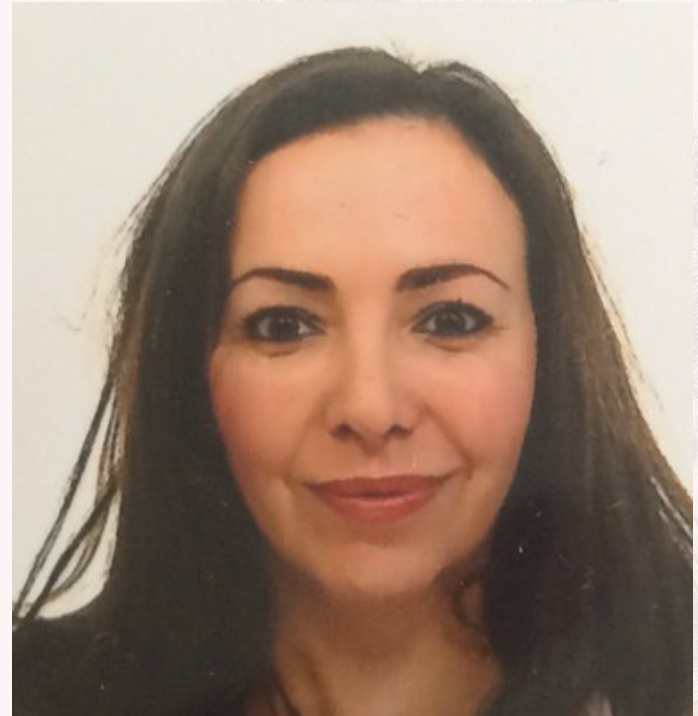WHO WE ARE, WHAT WE DO QUIÉNES SOMOS, LO QUE HACEMOS
Why Cervantes Now? / ¿Por qué Cervantes ahora?
David Castillo ** William P. Childers ** William Egginton ** Stephen Hessel ** Ana Laguna ** Rogelio Miñana **
〰️
David Castillo ** William P. Childers ** William Egginton ** Stephen Hessel ** Ana Laguna ** Rogelio Miñana ** 〰️
David R. Castillo
Professor of Spanish Literature, Director of the Humanities Institute and Co-director of the Center for Information Integrity at SUNY Buffalo
Catedrático, Director del Instituto de Humanidades, Co-director del Centro de Integridad Informativa en la Universidad de SUNY, Buffalo.
We are stories, the stories we believe, the stories we live by, the stories we fear… Cervantes urges us to examine closely, discerningly (de espacio) our stories (their content and their form, their mechanics), but also to imagine new, original storylines, and novel ways of storytelling. If we think of Cervantes as a writer deeply concerned with the emerging mass-media of his time and its effect on its consumers, spectators or users, couldn’t we/shouldn’t we read him against the grain of our own mass-culture and claim him as an ally, a historical partner, as we try to figure out how to survive this age of media saturation and disinformation?
Somos historias, las historias en las que creemos, las historias que conducen nuestras vidas, las historias que tememos… Cervantes nos urge a examinar despacio (de espacio) nuestras historias (su contenido y su forma, sus mecanismos), pero además a imaginar nuevas historias y nuevos modos de contarlas. Si pensamos en Cervantes como un escritor profundamente preocupado por los nacientes medios de comunicación de masas y su efecto en sus consumidores, espectadores o usuarios, ¿no pudieramos o debieramos leerlo a contracorriente de nuestra propia cultura de masas y reclamarlo como aliado, compañero histórico, en nuestro intento de sobrevivir esta edad de saturación mediática y desinformación?
William P. Childers
Associate Professor, Brooklyn College and CUNY Graduate Center
Profesor Titular en Brooklyn College y el Centro de Graduados de CUNY
Don Quixote is a very funny book, as are many of Cervantes’ other writings. From across the centuries, his booming laughter is another powerful weapon he bequeathed us, this time to point at those who not only lie to us, but brainwash us into deceiving ourselves. In its gentler echoes, his laughter teaches us not to take ourselves too seriously, either. Alongside this mockery of the world as it is, his texts parade before the reader a seemingly endless array of characters, with Quixote in the lead, who refuse to accept the hand they were dealt. They write their own lives, reinvent their identities. The suggestion seems to be that we might do the same. Between his mocking/healing laughter and inexhaustible optimism, Cervantes fortifies us for the struggle not just to survive, but in whatever small way we can to change things for the better.
El Quijote es un libro graciosísimo, como lo son muchos de los otros escritos de Cervantes. A través de los siglos, su risa explosiva es otra arma poderosa que nos legó, ahora para apuntar contra aquellos que no sólo nos mienten, sino que nos lavan el cerebro para que nos engañemos a nosotros mismos. En sus ecos más plácidos, su risa nos enseña a no tomarnos demasiado en serio, tampoco. Al margen de esta burla contra el mundo como es, por sus textos se desfila un sinfín de personajes, don Quijote al frente, que se niegan a aceptar las cartas que les fueron repartidos. Escriben sus propias vidas, reinventan sus identidades. La implicación parece ser que hagamos lo mismo. Entre su risa burlona y curativa a la vez, y su inagotable optimismo, Cervantes nos fortalece para la lucha no sólo para sobrevivir, sino para mejorar el mundo que nos rodea, en la mínima medida posible.
William Egginton
Decker Professor in the Humanities. Mellon Professor in the Humanities. Director, Alexander Grass Humanities Institute, Johns Hopkins University
Director del Instituto de Humanidades Alexander Grass, Cátedras Decker y Mellon de Humanidades. Universidad de Johns Hopkins
Like us, Cervantes lived in a world saturated by media, even if his were driven by different technologies. Like in ours, those who dominated the media in his world were capable of manipulating people’s perception of the reality they inhabited. Unlike too many of us, Cervantes discovered a way to dispel the power of that manipulation. He realized that using stories to explore how characters try, and often fail, to navigate the pitfalls of belief was a better, more effective defense against such manipulation than simply producing more reality-speak. In so doing he created a new form of fiction, one whose power can continue to serve us today.
Como nosotros, Cervantes vivió en un mundo saturado de los medios de comunicación, aunque en su caso estos fueron impulsados por tecnologías diferentes. Como en el nuestro, los que dominaban los medios en su mundo eran capaces de manipular la percepción que tenía la gente de la realidad que habitaban. A diferencia de muchos de nosotros, Cervantes descubrió una manera para disipar el poder de esa manipulación. Se dio cuenta de que usar historias para explorar como los personajes tratan de navegar las trampas de la creencia, como y a menudo fallan, era una defensa mejor y más efectiva contra tal manipulación que simplemente producir un discurso más sobre la realidad. Al hacerlo, creó una nueva forma de ficción, cuyo poder puede seguir sirviéndonos hoy.
Ana Laguna
Professor, Rutgers University-Camden. Executive Officer of the Cervantes Society of America
Catedrática de la Universidad Rutgers-Camden. Directora Ejecutiva de la Sociedad Cervantina Americana
Cervantes, that epicenter of Spanish cultural modernity, has been intensively recognized by those relegated to the margins of history. During the twentieth century, the giant that “asks you to address him as a friend” kept the company of dissidents, exiles, and even those imprisoned in concentration camps. One grateful survivor founded an extraordinary Cervantine museum in Guanajuato (Mexico), while many others built their homages more intimately, making the author the indelible trademark of their experiential and literary sensibilities. Today, thanks to the Cervantine compass, we all can traverse—with a beautiful gallop or just a slow trot—the crossroads of Baroque disenchantment and millennial disengagement with depth, elegance, and humor.
Cervantes, ese epicentro de modernidad cultural española ha sido intensamente apreciado por los expulsados fuera de sus márgenes. En el siglo XX, ese gigante que “insta a que se le hable de tú,” acompañó fielmente a los disidentes, exiliados e incluso internados en campos de concentración. Un superviviente agradecido impulsaría la espectacular sede cervantina de Guanajuato en México mientras otros muchos le dedicarían homenajes más íntimos, haciéndole santo y seña de su perspectiva vital y/o literaria. Gracias a la brújula cervantina, podemos todos transitar—con trote gorrinero o a golpe de galope—el presente cruce de caminos entre el desengaño barroco y el desencanto milenial-rio con profundidad, humor y elegancia.
Rogelio Miñana
Vice Provost for Global Engagement, Drexel University
Vicepresidente de Participación Global, Universidad Drexel
Cervantes is alive and well today not only in academic and elitist spaces, but also in marginalized neighborhoods and underserved communities. In Brazil, Colombia, Mexico, Chile, Spain or the United States, numerous youth and cultural nonprofits adapt Cervantes' works, in particular Don Quixote, to tackle today's contemporary realities and challenges. Cervantes continues to inspire children, youth, and adults with the power of words and art to better oneself and achieve a more just, equitable, diverse, and inclusive society.
Cervantes vive hoy día no solo en espacios académicos y de cultura elitista, sino también en barrios marginados y comunidades desfavorecidas. En Brasil, Colombia, México, Chile, España o los Estados Unidos, numerosas organizaciones juveniles y educativas sin ánimo de lucro adaptan la obra cervantina, y en particular Don Quijote, a las realidades y desafíos contemporáneos de hoy día. Cervantes sigue inspirando a niños, jóvenes y adultos con el poder de las palabras y el arte para mejorar al individuo y lograr una sociedad más justa, igualitaria, diversa e inclusiva.
Cervantes understood only too well the fictions and myths that arise when scientific knowledge is pulled from its context of production and yoked to racism, sexism, classism, and so on. By critically weaving scientific discoveries and debates into his fiction, he gives us tools to analyze and combat misleading uses of science and history. More importantly, he shows us the necessity and power of art in a world that fetishizes technology at the expense of human relationships.
Cervantes comprendió muy bien los mitos y ficciones que surgen cuando el conocimiento científico es sacado de su contexto de producción y sometido al yugo del racismo, sexismo, clasismo, etc. Al entretejer los descubrimientos y debates científicos dentro de sus obras de manera crítica, nos provee herramientas para analizar y combatir los usos engañosos de la ciencia y la historia. Más importante aun, nos demuestra la necesidad y la potencia del arte en un mundo que exagera el poder de la tecnología al detrimento de las relaciones humanas.







